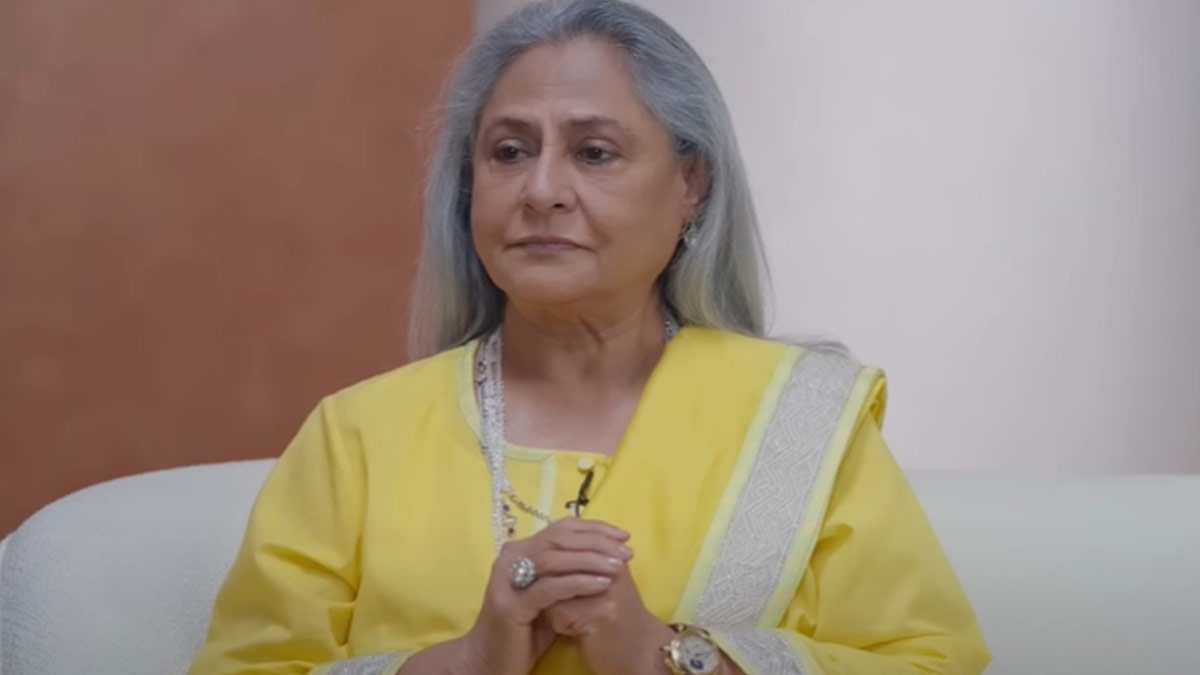
In a recent episode of What The Hell Navya Season 2, Jaya Bachchan, alongside her granddaughter Navya Naveli Nanda and daughter Shweta Bachchan Nanda, delved into the intricate relationship between the younger generation and the internet. Jaya Ji expressed concerns over the increasing need for validation among Gen Z kids, citing their reliance on mobile devices and internet content for validation regarding appearance and opinions. She pointed out how this incessant quest for validation contributes to heightened stress levels, a phenomenon she believes was absent in her own childhood.
Table of Content:-
View this post on Instagram
The Impact of the Internet on Mental Health
Jaya Bachchan's observations echo a growing sentiment regarding the detrimental effects of social media on mental health. With the constant influx of information, ranging from beauty standards to lifestyle trends, the younger generation finds itself grappling with heightened levels of anxiety. While Shweta Bachchan Nanda offered a contrasting viewpoint, acknowledging the presence of anxiety throughout history but recognizing its heightened visibility in contemporary times, the conversation underscored the profound impact of the digital age on mental well-being.
Unveiling the Social Dilemma
Social media platforms like Instagram have attempted to address these concerns by implementing measures like hiding likes to mitigate the adverse effects of comparison and validation-seeking behaviour. However, psychiatrists like Dr Fabian Almeida, Consultant Psychiatrist, Fortis Hospital, Kalyan warn that these efforts might merely scratch the surface of a deeper issue. Despite such initiatives, social media remains a double-edged sword, offering moments of validation while perpetuating anxiety, depression, and even physical ailments.

The Allure of Social Media
The allure of social media lies in its ability to activate the brain's reward centre, releasing dopamine akin to pleasurable activities like sex and food. This addictive nature, coupled with the unpredictable nature of social media interactions, keeps users engaged despite the potential negative consequences on their mental health. The fear of missing out (FOMO) further exacerbates these issues, driving individuals to incessantly check their feeds in a bid to stay connected and relevant.
Also Read: Imran Khan Opens Up On Seeking Therapy For Mental Health; Reasons To Give Talk Therapy A Try
The Vulnerability of the Digital Age
The vulnerability of the digital age is particularly pronounced among adolescents, with early exposure to social media amplifying its impact on mental health. Females, in particular, are susceptible to relational aggression and harmful comparisons fostered by social media platforms. The distorted reality presented by filtered images and curated lifestyles exacerbates feelings of inadequacy and self-doubt, especially during pivotal developmental stages.
Navigating the Digital Landscape
While the onus lies on social media platforms to enact meaningful change, individuals can take proactive steps to safeguard their mental well-being. Self-monitoring one's social media usage, setting boundaries, and fostering healthy offline connections are crucial steps in mitigating the adverse effects of excessive screen time. Moreover, parents play a pivotal role in modelling healthy media use and facilitating open conversations about the impact of social media on mental health.
Bottomline
As society grapples with the pervasive influence of the internet on mental health, it becomes imperative to acknowledge the nuanced interplay between digital connectivity and psychological well-being. While social media offers unprecedented opportunities for connection and self-expression, its unchecked proliferation poses significant risks to mental health, particularly among the younger generation. By fostering a culture of mindfulness and moderation, we can navigate the digital landscape while prioritizing our mental well-being above all else.
Also watch this video
How we keep this article up to date:
We work with experts and keep a close eye on the latest in health and wellness. Whenever there is a new research or helpful information, we update our articles with accurate and useful advice.
Current Version